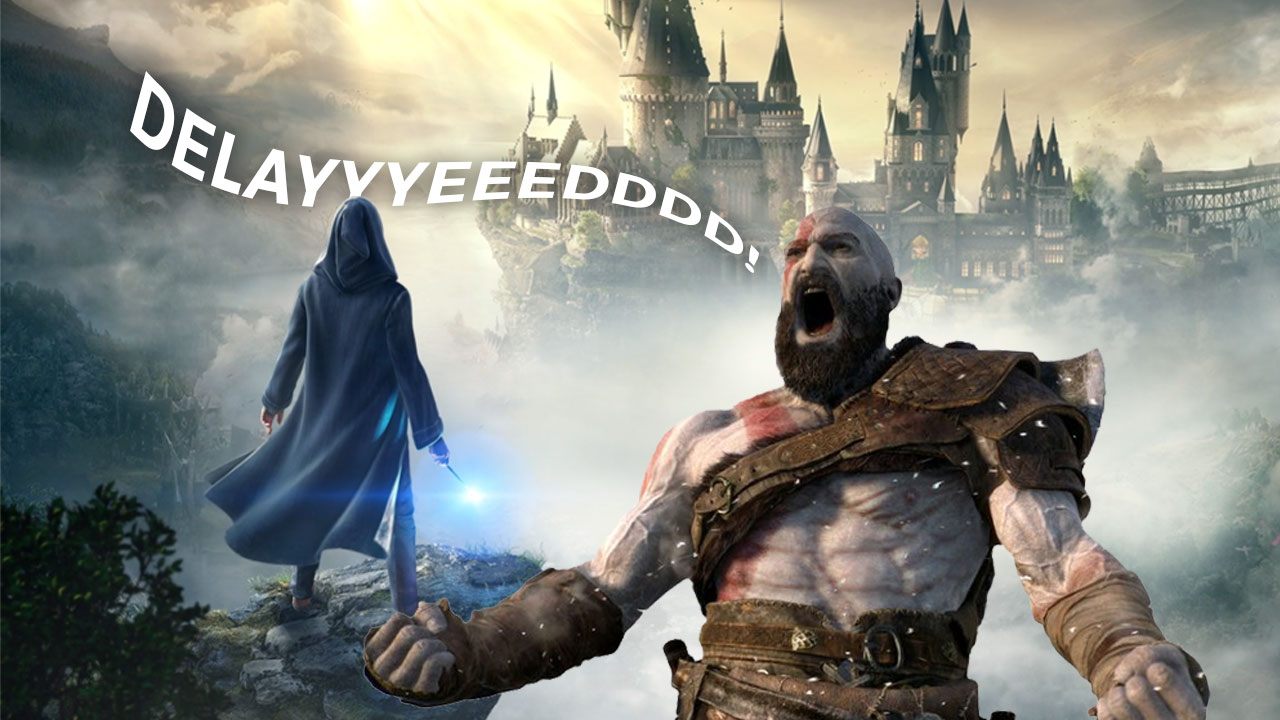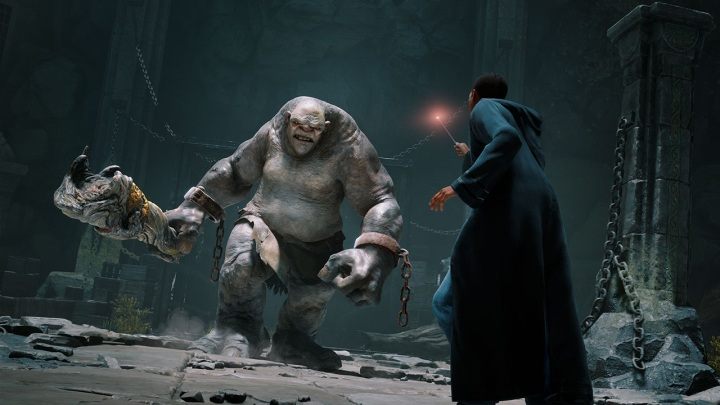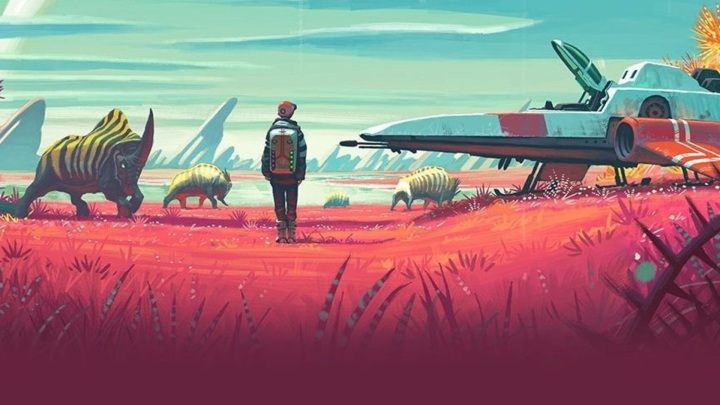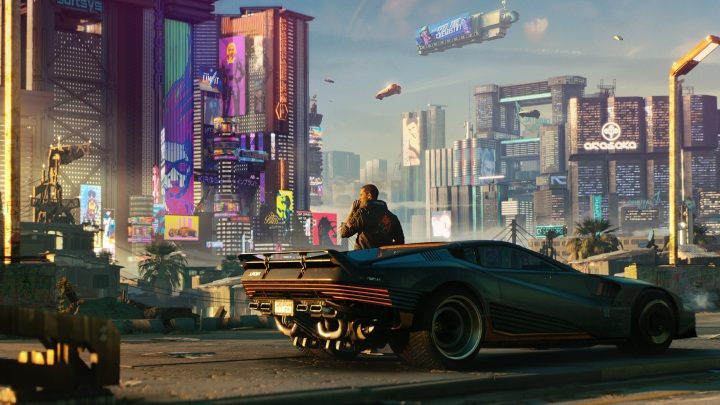A Year Without Games? 2021 May Be Year of Unprecedented Delays
The apocalypse of shifting release dates predicted for 2020 didn't arrive. But it seems it was... postponed just as well. Here, we take a look at what looks like a coming year of unprecedented delays of video game releases.

With the outbreak of the coronavirus pandemic and the resultant changes in the way video game companies work, there was a lot of talk of potential delays. Meanwhile, things operated almost nominal in 2020 in this respect. Sure, quite a few games – including Far Cry 6, Deathloop or Halo: Infinite – didn't show up on the scheduled date, but there weren't much more delays than on a regular year. After all, we traditionally got the new FIFA, Assassin's Creed and Call of Duty, as well as Cyberpunk 2077, Watch Dogs: Legion, or the definitive version of the first Mafia, all before the end of the year. It wasn't as bad as one might have feared.
At least at the time. Indeed, the first months of 2021 brought a very different picture. Already at the beginning of the year, news broke about the postponement of Outriders and Fortress: Lords of War, and in the following days, we learned about the expected delays of, among others: Gotham Knights, Hogwarts Legacy, The Lord of the Rings: Gollum, Returnal, the remake of Prince of Persia: Sands of Time, Riders Republic, Vampire: The Masquerade - Bloodlines 2, Gran Turismo 7, Kenya: Bridge of Spirits, Sniper: Ghost Warrior Contracts 2 or, most painfully, Strive's Guilty Gear.

We also have to wait much longer for post-release content in case of games that have already been released. Crystal Dynamics' assurances from a few months ago saying that we'd be getting new characters for Marvel's Avengers more often, now sound like a sad joke. The multiplayer mode for Watch Dogs: Legion was originally due to arrive in December, meanwhile, it was added in the second half of March. The Cyberpunk 2077 repair roadmap announced in January was also significantly pushed back. On top of that, there are probably many delays that we don't know about officially, as the creators were careful not to reveal the planned release dates prematurely.
The result of all these shifts is what's likely the weakest year in terms of major debuts in a really long time. The release calendar for the coming months sees mostly remasters, ports, and smaller titles. The few larger works still targeting 2021 are mostly veterans of the production process, creeping to the finish line, already significantly delayed. Fans tremble for the fate of the few of these, firmly adhering to the deadlines set long ago, every day fearing the news of a slip-up. Sad? Not necessarily – it might as well be the harbinger of better things to come.

The dichotomy of delays
Why such a breakneck and seemingly preposterous thesis? Let me explain. COVID, while a fairly obvious reason for missed deadlines, is not necessarily the only reason. Before we get onto that, let's first take a look at what the presence of the pandemic changed.
While the video game industry has generally emerged from the pandemic with record-high profits, the need to suddenly switch to remote work has taken its toll. According to the results of a survey of international Game Developers Conference attendees released in July 2020, the pandemic has delayed the work of at least one-third of the interviewed developers. Since then, the number probably only increased. With at least 50 game release date delays, pandemic-related difficulties have been cited as the official reason, although it can be estimated that the actual scale is at least several times greater. Certain projects, such as the outbound-based mobile Minecraft Earth, COVID simply killed.
AND THEY SOMEHOW MANAGE (REMOTELY)
On the web, we can find quite a prevailing statement saying that, all in all, programmers do not have huge problems with remote work, so the delays cannot be explained by the pandemic. However, it's important to remember that the process of creating a game is not just programming, even at the risk of stating the obvious. Some of the work is done in a manner more akin to the motion picture industry – motion capture sessions or sound production require the presence in the studio or some really specialized conditions in the employees' homes.

And yet, we still managed to play quite a few big-budget AAAs in 2020 – it's presumably more than we'll get this year. Why? The reasons I see are twofold. Firstly, the games released last year were at an advanced stage of development when the pandemic broke out. Most of the mechanics were already deployed, most of the major challenges were overcame, with mainly final touches left. Extending the production process by even, say, 25% is still far less of an issue than if the whole thing got stuck mid-way – and that was sometimes the difference between games that debuted in the fall or winter of 2020, and those that were still in-development early last year when the pandemic-induced chaos ensued. This assumption is borne out by the previously mentioned long delays of post-release content for games released in the second half of 2020, such as Marvel's Avengers and Watch Dogs: Legion.
The second reason is related to a date that many gamers will remember for a long time – December 10, 2020. You probably already know what I'm getting at – and his name was two thousand and seventy-seven.
Sometimes it's better to wait
To paraphrase a certain, tragically deceased pop-culture uncle, I would say that "with great hype comes great responsibility." Cyberpunk 2077 was one of the most hyped games of recent years, and the first sales results proved to unbelievers like me that CDPR really had a chance to create a franchise with the stopping power on par with Rockstar Games. And they squandered that chance in an utterly spectacular fashion, releasing a game that was simply unfinished – PCs a little, and on consoles definitely more so. The reputation that had been built up over the last decade and a half toppled like a house of cards, the initially fantastic sales slowed down dramatically, and the love from gamers quickly turned, at least in part, into hatred.

The next few months of patches and the debut of next-gen versions may allow the CD Projekt to bring Cyberpunk 2077 back to life and partially make up for all that, but the milk has already spilled. CD Projekt will not generate such an atmosphere of anticipation and hype again in many years. Potential buyers will be much more cautious, partners may be less eager to cooperate, the press will never forget. The second coming of the video game messiah will not be upon us – at least not from the makers of The Witcher.
There are many reasons for this (I tried to point them out in another article), but there was but one thing they could have done. Postpone the release again, for the fourth time. They didn't because they wanted to ride that xmass-shopping-frenzy wave. I can understand the profit-oriented people on the board had assumed that another delay will bring about unrecoverable losses. Meanwhile, in retrospect, even a few million fewer copies sold on launch day seems like a small price to pay if it would let you avoid all the gamer rage, lower long-term sales, likely tens of thousands of refunds, investor flight, and tarnishing their own reputations.
A lesson for the entire industry
"A delayed game is eventually good, but a rushed game is forever bad."
Shigeru Miyamoto
The hasty release of Cyberpunk 2077 is a painful lesson for CD Projekt RED, but not only them. I think it took such spectacular proportions and high notoriety that the famous words of Shigeru Miyamoto, the father of Mario and The Legend of Zelda, will finally be digested and internalized by other global publishers. After all, it happened before – just think No Man's Sky or Assassin's Creed Unity. None of these, however, have been as high-profile and spectacular as Cyberpunk 2077. Earlier scandals were also not associated with such measurable losses – withdrawing a game from the PlayStation Store is a move that means real financial losses, not just an image crisis.

Sad men in suits are watching all this and probably getting even sadder as they realize Cyberpunk 2077 could have bucked the trend. That once precedents are set, they can stay with the industry for longer. The leverage applied by Sony may be used again, in case of another scandal with an underbaked game. The first time's always the hardest, and since many people had to learn how refunds work with the release of the Polish action RPG, they may now feel more inclined to exercise their rights again. Finally, while generally possessing the memory of a goldfish, the general gaming public will be much more sensitive to the quality of titles delivered at launch, at least for a while... I mean, let's hope we will.
As a result, I believe publishers are opting to postpone the debuts of their games because they are simply afraid that their company will become another CD Projekt RED. The lessons learned by the Polish studio turned out to be valuable for the whole world – sometimes it's way better to wait and release a more polished product. Especially during a pandemic, when that fine-tuning is more difficult than it used to be. This could be just as important a reason for all these massive delays as the pandemic itself – and in this context, the release of Cyberpunk 2077 as it was could actually be a good thing for the entire industry.
And for gamers
What I find most fascinating in all this, however, is not the implicit change in the approach of game developers, but the most noticeable change in the mentality of consumers. By December 2020, the typical reaction of most gamers to news that the release of a highly anticipated title had been postponed was complaining, grunts of disappointment, and sometimes heckling of the developers. The subdued voices of those stating that they would rather wait and get a more polished game were drowned in a sea of negativity.

Cyberpunk 2077 reversed these proportions and now, reading the comments on our forums or social media, we're under the impression that the complaints get lost among the messages of support for the devs. CDPR's debacle has changed end-users' attitudes toward shifting launch dates. They understood how valuable patience can be. And that should only benefit all of us. Even if we're to pay for it with unprecedented amounts of delay and a shortage of high-budget games. We'll come out on top. All of these delayed games will eventually be released – and then, thanks to the lesson that Cyberpunk 2077 was, they will have a chance to turn out much better. Which I heartily wish for all of us.
ABOUT THE AUTHOR
I played Cyberpunk 2077 on launch day on PlayStation 4.



